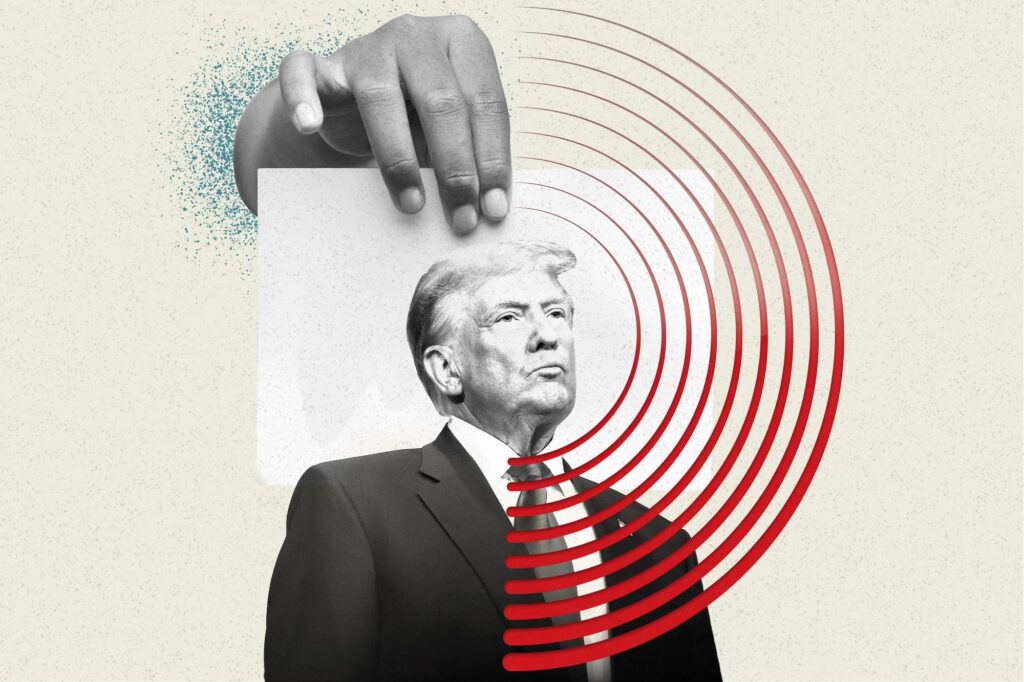As the dust settles on one of the most controversial presidencies in modern American history, the world looks ahead to the possibilities of a Trump 2.0 administration. One key area of interest is how the new administration may approach policy towards Sub-Saharan Africa. With a region rich in resources, diverse cultures, and complex political dynamics, the impact of America’s policies can have far-reaching consequences. In this article, we explore the potential strategies and priorities that a Trump 2.0 administration may adopt towards Sub-Saharan Africa, and the implications it may have for both the continent and the United States.
Analyzing Trump 2.0s Potential Sub-Saharan Africa Policy Shift
Trump’s potential Sub-Saharan Africa policy shift in his second term will likely focus on promoting American interests in the region through economic and strategic partnerships. One key aspect of Trump 2.0’s approach could involve increasing trade and investment with African nations to boost economic growth and create job opportunities both in the US and in Africa. This may include renegotiating trade agreements to be more favorable to the United States.
Another possible area of focus for Trump 2.0’s Sub-Saharan Africa policy could be increasing US military presence in the region to combat terrorism and protect American interests. This could involve expanding military cooperation with African countries to address security threats, such as terrorism and instability. Additionally, Trump’s administration may seek to strengthen diplomatic ties with key African allies to promote peace and stability in the region.
Key Areas of Focus for Trump 2.0s Africa Policy Strategy
Key Areas of Focus for Trump 2.0’s Africa Policy Strategy
Looking ahead to Trump 2.0’s approach to Sub-Saharan Africa policy, several key areas are likely to be the focus of his administration:
- Economic Development: A renewed emphasis on promoting economic growth and investment opportunities in the region through trade agreements and infrastructure development.
- Security Cooperation: Strengthening security partnerships to combat terrorism, piracy, and other threats to regional stability.
| Area of Focus | Objective |
|---|---|
| Economic Development | Promote sustainable economic growth and job creation. |
| Security Cooperation | Enhance regional security and peacekeeping efforts. |
Implications of a Revised Trump 2.0 Approach on Sub-Saharan Africa
One of the potential could be a shift towards a more transactional foreign policy agenda. This could involve a greater focus on securing trade deals that benefit the United States, potentially at the expense of aid and development initiatives in the region. The emphasis on economic interests could shape relationships with African nations, leading to a more pragmatic and business-oriented approach.
Another consequence of a Trump 2.0 approach to Sub-Saharan Africa policy could be a renewed emphasis on security and counterterrorism efforts. This may involve increased military cooperation and intelligence sharing with African countries to address security threats in the region. Additionally, there could be a push for greater involvement in peacekeeping missions and efforts to combat extremism in countries like Somalia and Nigeria. a Trump 2.0 approach could result in a more security-focused and transactional relationship between the United States and countries in Sub-Saharan Africa.
Recommendations for Trump 2.0 in Strengthening Relations with Sub-Saharan Africa
One approach for Trump 2.0 to strengthen relations with Sub-Saharan Africa would be to prioritize engagement with African leaders on key issues affecting the region. This could involve regular dialogues and summits to address challenges such as security, trade, and development. By showing a commitment to understanding and addressing the needs of African countries, Trump 2.0 can build trust and cooperation with nations in the region.
Furthermore, Trump 2.0 could focus on expanding economic opportunities through increased trade and investment. This could involve negotiating mutually beneficial trade agreements, supporting entrepreneurship and job creation in Africa, and encouraging U.S. companies to invest in the continent. By promoting economic growth and stability in Sub-Saharan Africa, Trump 2.0 can help to create a more prosperous and peaceful region.
To Conclude
As we eagerly anticipate the direction of Trump 2.0’s Sub-Saharan Africa policy, it is clear that his approach will have far-reaching implications for the continent. Whether he chooses to prioritize trade, security, or diplomacy, one thing is certain – the eyes of the world will be watching closely. Only time will tell how Trump 2.0’s policies will shape the future of US-Africa relations. Stay tuned for updates and analysis on this crucial topic.


